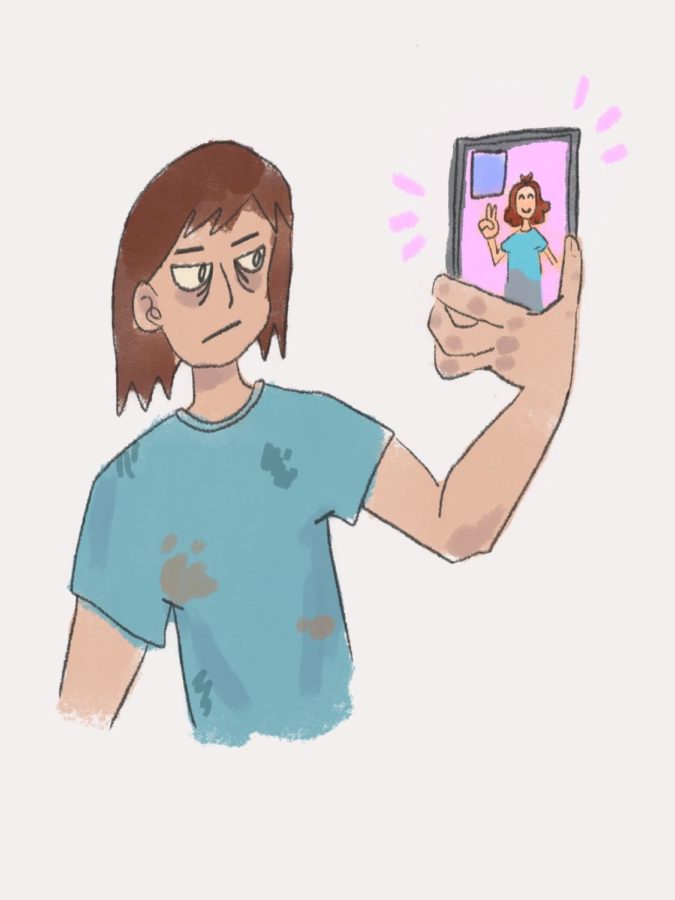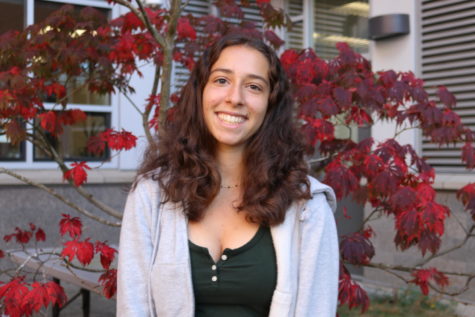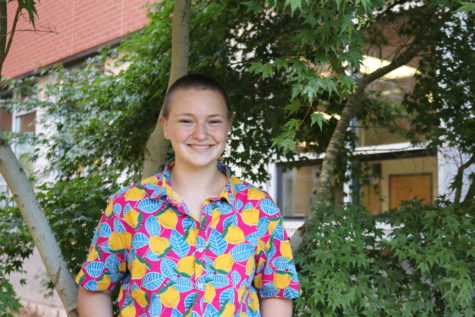BeReal: More like BeFake
The controversy around the new social media app
by Zoe Kelton
November 17, 2022
DING! Across the crowd at the football game, the student section pulls out their phones. Is it an amber alert? An air quality warning? No, it’s a BeReal notification: Gen Z’s newest social media fixation.
So, how exactly does the app work? It’s simple. Once a day, BeReal sends a notification to post a photo, giving you two minutes to do so. Both the front and back camera snap a shot at the same time, showing where you are and what you’re doing at the given moment. Only your friends (those you add) can see your post, encouraging you to put forth the truest version of yourself within the given time frame. Here’s the catch: In order to see what your friends post, you must post, thus motivating you to, as the name says, “Be Real.”
But many have accused BeReal of BeingFake. For one, the app permits you to post a late BeReal (after the notification period ended), still allowing you to see what your friends posted on-time. Furthermore, you can retake your BeReal, allowing you to re-pose for the photo. You can even post and then delete a BeReal— you’d still get to see what others posted, but they wouldn’t see yours after you’ve deleted it. These are just a few reasons students are calling BeReal out for its inauthenticity.
Sophomore Evelyn Grennan, who has never downloaded the app, believes BeReal was originally a “cute idea” that was taken too far. “Whenever it would go off, if people were at their house or something, they just wouldn’t take it,” Grennan said. “When my friends were all like ‘wanna get in my BeReal’ before taking it, it’s not actually real… it’s posing.”
Many agree with Grennan. Several students who initially downloaded the app are deleting it or opting out of taking their BeReals. One such student is senior Alberto Solano. “I first downloaded it in the summer and used it every day. Now, I rarely post,” Solano said, scrolling through his “memories” (the log of BeReals) to reveal several blank days. Part of this decline can be attributed to a return to school, Solano believes. With more opportunities for in-person social interaction, people no longer feel a need to post about their daily lives.
Despite the backlash BeReal is facing, some still use it frequently. Cally Webb, a freshman who’s had the app since it first came out, believes BeReal is a good way to socialize with others. “I think BeReal is good because there’s no filters. I mean sure, you pose for the picture, but that’s the only fake thing about it, it’s just a picture with your friends mostly,” Webb said. In this sense, BeReal differentiates itself from Instagram or Snapchat, where the content one consumes could be fake or edited.
Regardless of the controversy, many refuse to delete the app because they say they’d miss it. “I enjoy scrolling through and commenting on other people’s. It’s fun seeing what people are doing,” said Webb, adding that “Realmojis” (emojis made with one’s own facial expression) are a unique way to interact with others online. For now, it’s impossible to tell whether BeReal will continue to remain popular, or if it’s simply another phase that will die off by the year’s end.




